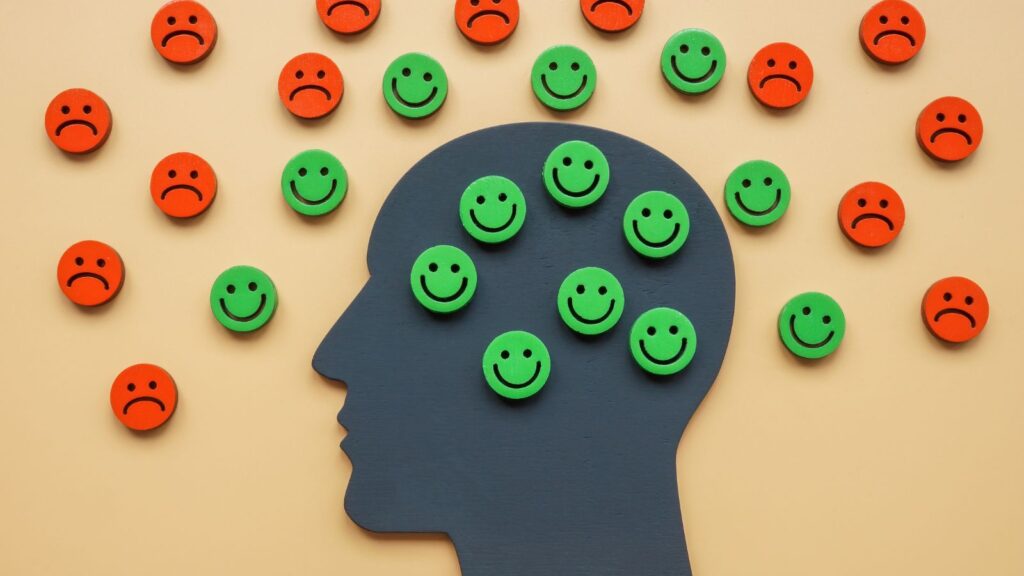Addiction recovery is a journey that involves not only physical healing but also profound psychological transformation. One of the significant hurdles faced by individuals on this path is the stigma associated with addiction. This stigma, deeply ingrained in society, can impede progress and discourage individuals from seeking help. However, positive thinking has emerged as a powerful tool in overcoming these challenges. Understanding and leveraging the impact of positive thinking on overcoming addiction can make a substantial difference in the recovery process.
Stigma creates negative stereotypes and discrimination, causing shame and isolation for those with addiction. This bias can impede recovery by promoting hopelessness and worthlessness. However, adopting a positive mindset helps individuals counter these negative effects and build resilience, transforming their recovery journey. To explore this further, let’s delve into the various ways positive thinking can transform the addiction recovery experience.
The Power of Positive Thinking
Positive thinking focuses on the good aspects of life and staying optimistic, even during challenges. For those in addiction recovery, this mindset boosts motivation, confidence, mental health, reduces stress, and improves overall well-being, all essential for successful recovery.

- Boosting Self-Esteem and Self-Worth
A positive mindset helps individuals see their value and worth beyond their addiction. Many people struggling with addiction often view themselves through a lens of failure and inadequacy. Positive thinking encourages self-compassion and self-acceptance, allowing individuals to recognize their strengths and potential.
- Encouraging a Growth Mindset
Adopting a positive outlook fosters a growth mindset—the belief that abilities and intelligence can be developed through dedication and hard work. This mindset contrasts with a fixed mindset, where individuals believe their traits and abilities are static. In addiction recovery, a growth mindset can be incredibly beneficial. It encourages individuals to view setbacks as opportunities for learning and growth, rather than as insurmountable failures.
- Reducing Stress and Anxiety
Stress and anxiety are common triggers for substance use. Positive thinking can mitigate these feelings by promoting relaxation and resilience. Techniques such as mindfulness, gratitude practices, and affirmations can help individuals manage stress more effectively. Reducing stress and anxiety, positive thinking creates a more stable emotional environment, conducive to recovery.
- Enhancing Motivation and Persistence
The journey to overcome addiction is often lengthy and demanding. Maintaining motivation can be difficult, especially when progress seems slow or setbacks occur. Positive thinking fuels persistence by focusing on the benefits of recovery and celebrating small victories along the way. This optimistic outlook can sustain individuals’ commitment to their recovery goals, even during tough times.
Combating Stigma Through Positive Thinking
Stigma can be a significant barrier to recovery, affecting not only the individuals struggling with addiction but also their families and support systems. Positive thinking can play a crucial role in combating this stigma in several ways:
- Changing Perceptions
By adopting and promoting a positive mindset, individuals in recovery can challenge and change the negative perceptions associated with addiction. Sharing stories of recovery, highlighting successes, and focusing on the positive aspects of life after addiction can shift societal views. When the narrative around addiction changes from one of failure to one of resilience and transformation, stigma can be significantly reduced.
- Building Supportive Communities
Positive thinking encourages the formation of supportive and empathetic communities. These communities are vital for individuals in recovery, providing a network of encouragement and understanding. When individuals feel supported and valued, they are more likely to seek help and stay committed to their recovery journey. This collective positivity can help break down the barriers of stigma, creating an environment where recovery is openly discussed and celebrated.

- Empowering Advocacy
Individuals who embrace positive thinking are often more empowered to advocate for themselves and others. They can become voices for change, challenging stigma and advocating for better treatment and support systems. This advocacy can lead to broader societal changes, fostering a more inclusive and compassionate approach to addiction recovery.
Practical Strategies for Cultivating Positive Thinking
While the benefits of positive thinking are clear, cultivating this mindset requires intentional practice. Here are some practical strategies to help individuals in recovery develop and maintain a positive outlook:
- Mindfulness Meditation
Mindfulness meditation entails concentrating on the present moment without passing judgment. This practice can help individuals become more aware of their thoughts and feelings, allowing them to respond with compassion and positivity. Regular mindfulness practice has been shown to reduce stress, improve emotional regulation, and enhance overall well-being.
- Positive Affirmations
Positive affirmations are statements that reinforce positive beliefs and self-perceptions. Repeating affirmations such as “I am capable of overcoming challenges” or “I am worthy of love and respect” can help individuals internalize these positive messages. This practice can boost self-esteem and resilience, aiding in the recovery process.
- Surrounding Oneself with Positivity
The company one keeps can significantly impact one’s mindset. Surrounding oneself with supportive, positive individuals can reinforce a positive outlook. Engaging in activities that bring joy and fulfillment, such as hobbies, exercise, or volunteering, can also enhance positivity.
